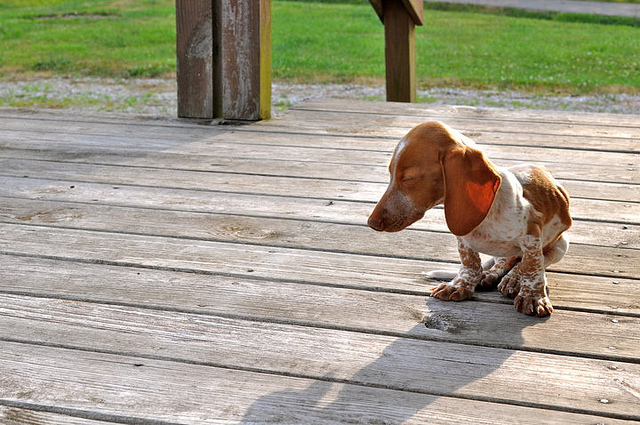If you’re reading this, you probably love animals. Sure, you might prefer dogs to cats or vice versa, but generally speaking most people that love one deeply also love every other living creature. There is something magical about the relationship with humans and animals of any species. We’re able to create impermeable bonds, work together and appreciate each other in ways that cannot be explained or replicated with other people. They are innocent beings with an unconditional love for their people, no matter how we treat them. Animals don’t care if we’re multi-millionaires or homeless; they love us all the same.
Unfortunately, there are terrible people in this world that take advantage of the special bond between animals and humans. Animal abuse is far more common than we’d like to acknowledge, but there’s no denying that it exists. In fact, we must address the abuse and take a stance to prevent it. These animals have no voices and they need us to be their advocates. If you have witnessed or suspect animal abuse of any kind, reporting it is the best way to save the lives of the animals. How can you safely report animal abuse? We have some suggestions here.

#1 – Know The Signs Of Animal Abuse & Neglect
Obviously, seeing an animal being hit, kicked or physically injured is a sure sign of abuse. That said, most cases of abuse are forms of neglect that are harder to see. Since most criminals aren’t going to physically abuse animals out in the open, you’re going to have to keep your eyes peeled for some time to spot any neglect that’s happening behind the scenes. If you notice that animals are left alone for long periods of time without proper care – for example, they are severely underweight or overweight, have no access to food, water, or shelter and are living in piling up feces and urine – chances are they are being heavily neglected. Animal hoarding is another form of neglect and you might see the same signs mentioned, but likely with many more animals involved. A lack of veterinary care is also animal cruelty. Animals should not be left to die. It’s understood that veterinary care can be expensive, but there are many more options than refusing to treat a pet and leaving them to suffer until they finally pass away.
#2 – Call The Police
If you witness animal cruelty in person, calling the police is your best bet. Animal abuse is a crime and reporting as it is happening is the best method of action. Do not step in and try to handle the situation yourself because you may be putting yourself at risk for injury or death. Remember, these people are criminals and if they have no problem harming an animal, they will have no problem harming you. The best way to stop the abuse is to call the police immediately. Give them as much information as possible so that the abuser can still be found should he or she manage to leave the scene.

#3 – Contact Your Local Animal Cruelty Prevention Organization
Your local animal shelter or even a veterinarian can help direct you to the appropriate organizations to contact if you don’t know where to start. Even if you don’t witness any abuse first-hand, suspected abuse should be reported. Not all abuse is immediate and serious neglect can result in the death of an innocent animal. Letting your local SPCA know as much information as possible could save the lives of the animals involved. Remember that most people aren’t going to abuse animals in public, so if you notice small signs it’s likely that something more serious is going on.
#4 – Offer As Much Documentation As Possible
Whether you’re contacting the police or your local SPCA, you’ll want to provide as much information as you can. Even if you are watching what you think is abuse for a few days or months, take notes. Identify what you think the issues are – neglect, animal fighting, physical abuse – and use as much detail as possible. Keep written logs of dates and times you’ve spoken to authorities, to the pet owners if you have done so, and anyone else that can provide information to the investigation. If you are able, take photos or videos. What is most important, however, is that you do not put yourself in any danger. Do not trespass onto anyone’s property and do not break the law trying to catch these criminals as this will only hurt you, your case and possibly the animals involved. If your pet is the animal that was abused and he or she does not survive, have a veterinarian perform a necropsy. Just like a human autopsy, a necropsy will determine the cause of death and the extent of the injuries and neglect.

Fighting animal cruelty takes time and dedication, but you don’t have to do it alone. There are many organizations out there to answer your calls and take the matter into their own hands so you don’t have to put yourself and your family at risk. The prevention of animal cruelty starts with us – we are their voice! For more information about reporting animal abuse, visit ASPCA’s Take Action page.
Featured photo: Viktor Kirilko

